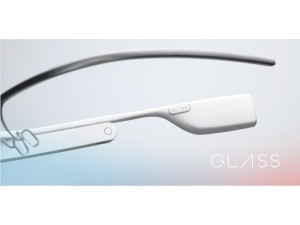
In an interview with BBC Radio 4 this past weekend, Google chairman Eric Schmidt revealed the search giant's much anticipated Glass innovation will be released to the public next year.
Schmidt openly discussed several of Google's innovations, and revealed more specific details about the development and release of Google Glass.
"We have just started distributing it to the first developers. It would be fair to say there would be thousands of these in use by developers over the next few months, and based on their feedback, we'll make some product changes and it's probably a year-ish away."
Schmidt was also questioned about some of the privacy issues raised on the recording of people without their knowledge. He responded saying that body-wearable devices, of which Glass is an example, will bring in a whole bunch of such concerns.
"And the fact of the matter is that we will have to develop some new social etiquette. It's obviously not appropriate to wear these glasses in social situations where recording is not correct and indeed you have this problem already with phones."
He added that while Google has an important responsibility to keep people's information private, the public has a responsibility to understand what they are doing and how they are doing it.
Developments
Earlier this month, Google released full specifications for Glass. The most important part of the wearable device is the display, which is claimed to be the equivalent of a 25-inch HD screen from eight feet away. It is also equipped with a 5MP camera and can record 720p videos. Besides having a Bluetooth connection, the device will also be able to connect via WiFi.
Google Glass will be able to connect with any Bluetooth-enabled smartphone through its MyGlass companion app, which runs on Android 4.0.3+.
In terms of storage, the device will be equipped with 16GB of flash, 12GB of it usable. It can also be synced with Google's cloud storage service.
Google claims Glass will have enough battery power to last a full day of regular usage, but extended recording and features like Hangout could drain the battery faster. A micro USB cable and charger are also included with the device.
It has a sound feature, called the Bone Conduction Transducer, which transmits sound from the device to the wearer's inner ear and then to the skull, meaning regular headphones do not have to be used.
Google's MyGlass companion app, which allows users to configure and manage their devices, is available for download from the Google Play store. It has already received an overall five-star rating, with raving reviews from those who have had the opportunity to work with the device.
In March, Google Project Glass held a developer panel at the SXSW Interactive conference and showcased some of the first third-party apps that would be integrated into Google Glass. These apps include Gmail, Evernote, Path and The New York Times.
Last week, the search giant also announced it has started shipping the devices for pre-testing to its 2 000 "Explorers" who signed up for Glass at Google's I/O developer conference last year.
Hiccups
Last week, the company's terms and conditions on the Glass device caused a stir as it revealed the eyewear cannot be resold, loaned or transferred to someone else.
This is what the company says in its terms of sale: "Unless otherwise authorised by Google, you may only purchase one device, and you may not resell, loan, transfer, or give your device to any other person."
It then goes on to give this warning: "If you resell, loan, transfer, or give your device to any other person without Google's authorisation, Google reserves the right to deactivate the device, and neither you nor the unauthorised person using the device will be entitled to any refund, product support, or product warranty."
Share